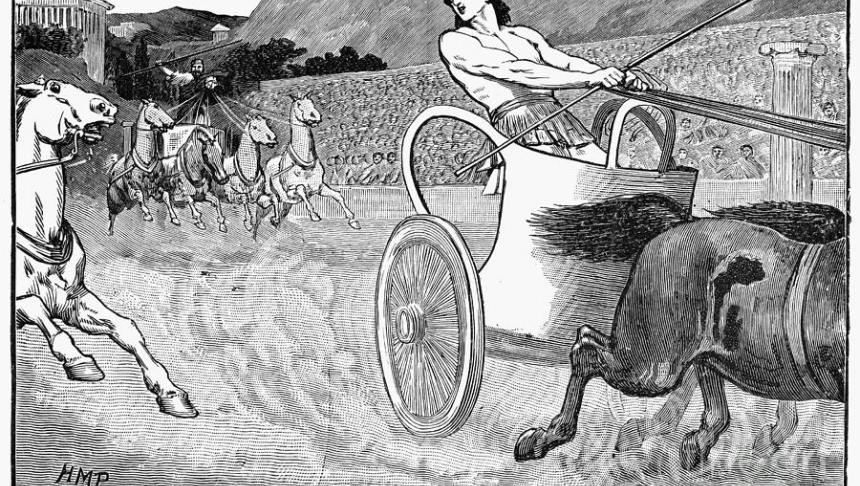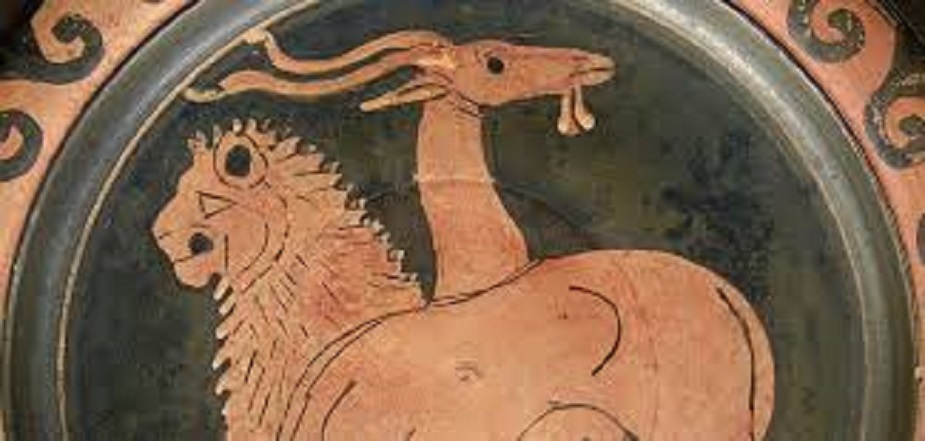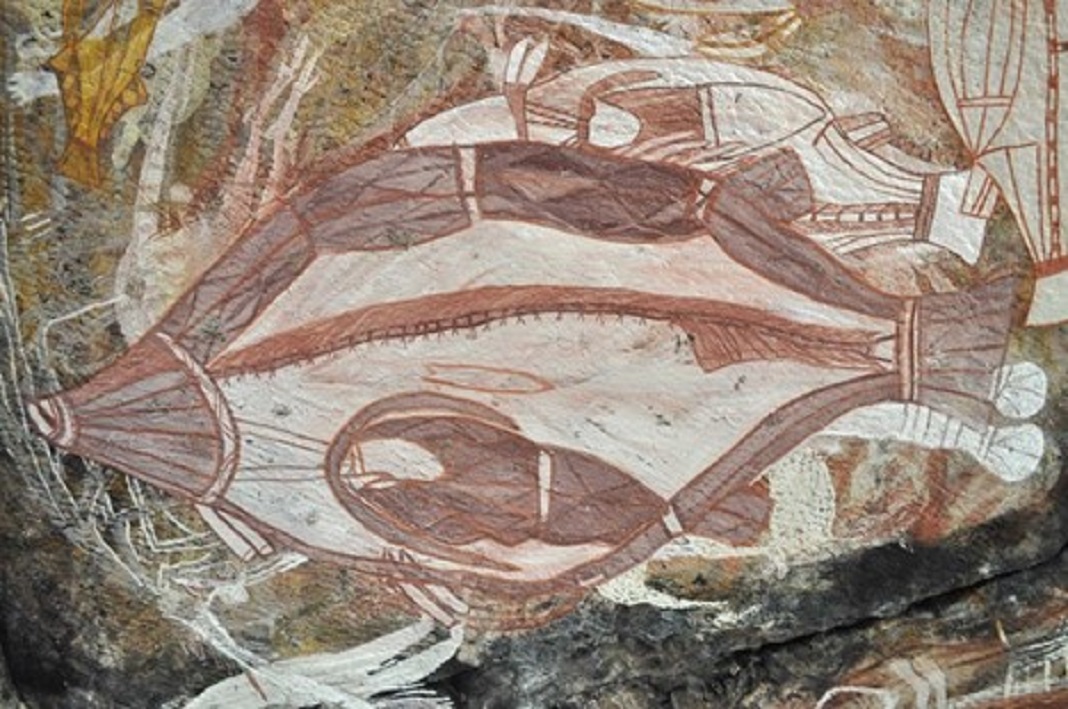Today’s Olympics still bear the mark of the ancient Greeks. Is an international level competition, hundreds of thousands of people are frantically applauding and supporting their favorites, assiduous training, considerable prizes and, of course, the opportunity to go down in the sports history.
However, some Olympic events inaugurated in Ancient Greece have disappeared from the Olympic competition of the XXI century, as well as certain practices and habits that Greeks were organizing after a victory or a defeat.
First Olympics took place in 776 BC in the town of Olympia, in the western part of Peloponnese. It is said that this tournament has grown from the tradition of holding such games as a funerary practice, in honor of deceased warriors and local heroes. However, mythology attributes the founding of the Games to the demigod Heracles.
The Greeks continued the tradition, from 4 to 4 years without interruption for 1,200 years. The Olympics were banned in 393 by emperor Theodosius I; According to his Christian conception, the competition was a tribute to Zeus, so it was a pagan practice.
The wars have been a source of inspiration for many of the Olympic events of the ancient world. An army of soldiers who were running dressed from head to toe in armor, was an effective method to surprise and frighten the enemy armies. This was the basis of the hoplitodromos or hoplitodromia (the race in armor): 25 participants, on a 192-meter stadium in Olympia, fully dressed in armor, bringing the total encumbrance to at least 30 pounds (13.6 kilograms). They had to throw darts at the target, while the horses were galloping. This test was also one of the standard military practices.
Cart-races were fascinating the audience
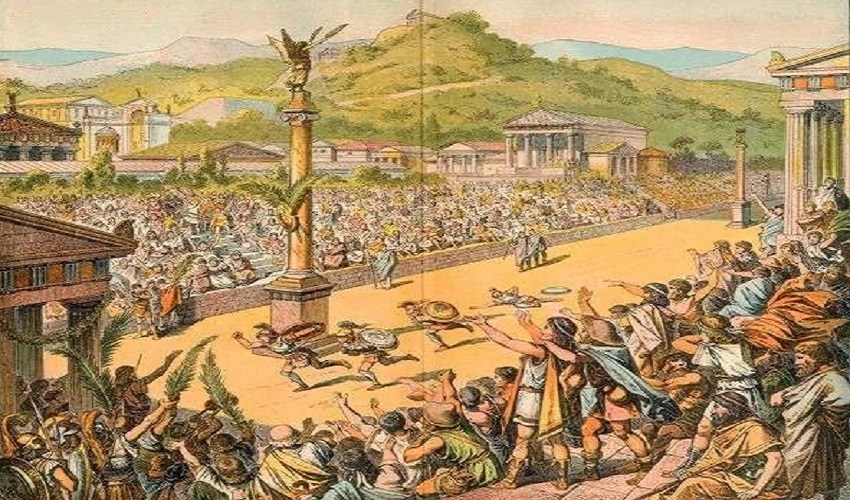
Harness racing, with two or four horses, were some of the most dangerous and the most anticipated Olympic events. In ancient Greece, chariots have been used during the Mycenaean civilization sometime between 1600-1100 BC. The harness racing is one of the oldest Olympic events; it was introduced in the competition since the first edition. Only the wealthiest people could afford extremely high maintenance costs of chariots and horses.
The investors wanted the glory and the fame of victory, so they were generally hiring carriage drivers who were willing to risk even their own lives for the grand prize. Clashes were numerous, spectacular, and in some cases even fatal.
One of the most famous carriage drivers was the Roman emperor Nero, who in 67 BC participated in such an Olympic competition. The race was by no means fair. Nero raced a ten-horse chariot; he was thrown from the chariot and was no longer able to continue the race. However, he was declared champion, arguing that he would have won the race anyway, if he would have continued it.
Heavyweight fights
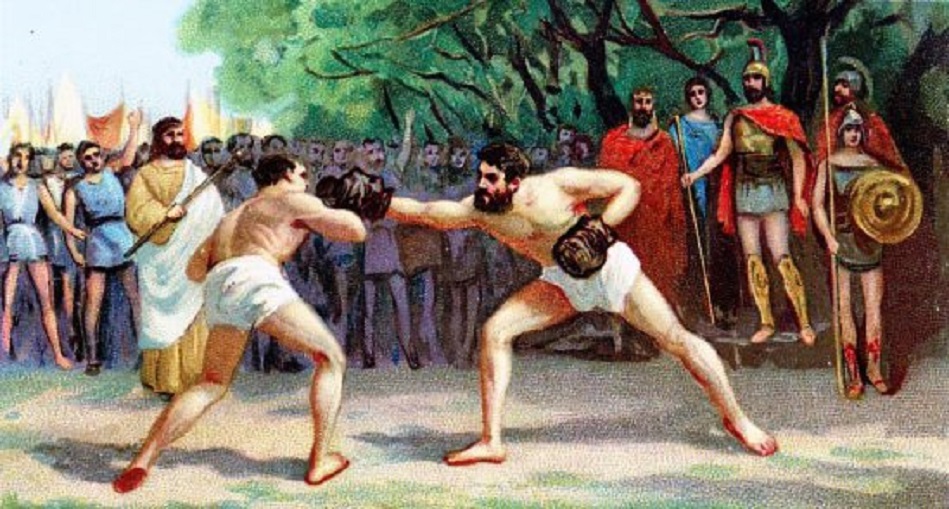
What the Greeks referred to as “heavyweight” sporting events was in close connection with the fighting. Boxing and wrestling, but also a combination of the two, called Pankration, were requiring physical strength, but also battle tactics. There were some cases where the outcome of the match was the death of one of the participants. This is justified by the fact that there were no weight classes, and often the most massive participants came out winners.
Everything and anything was allowed in the Pankration; the only thing not acceptable was biting. Two fighters had been remarked for their tactics at the Ancient Olympic Games: one of them, at the beginning of each match, broke his opponent’s fingers and the other was able to dislocate the ankle of his opponent.
Country, country we don’t want hostages!
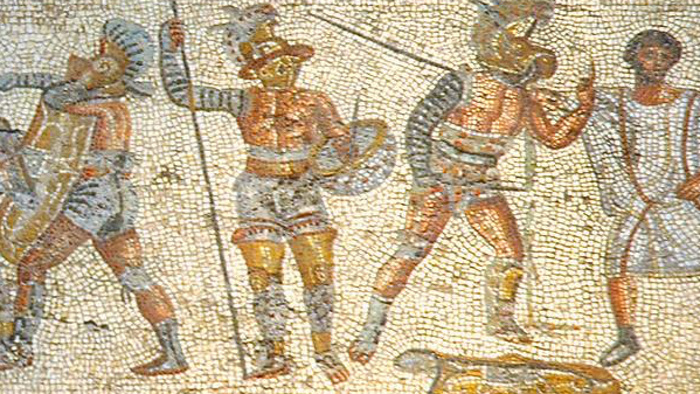
Although many of the sporting events of the Olympics were pretty brutal, the event maintained a temporal peace between warring cities. An inscription on a bronze tablet, known as the sacred truce, was ensuring the safe journey of athletes; moreover, the participating states were prohibited from causing any kind of conflict and hostage-taking. Given that some athletes were coming from as far afield as North Africa, the shores of the Black Sea and Western Spain, the truce was extended for a period of three months.
During the opening ceremony, the athletes as well as their first degree relatives and their coaches swore before Zeus that they will comply with all rules of the games and that have trained at least 10 months. Yet, some could not refrain from cheating. For example, the wrestlers used to anoint their bodies with olive oil to slip from the hands of their opponents. Another frequently used way of cheating was bribing the referees or even the opponents. Those caught were fined and beaten in the public square.
